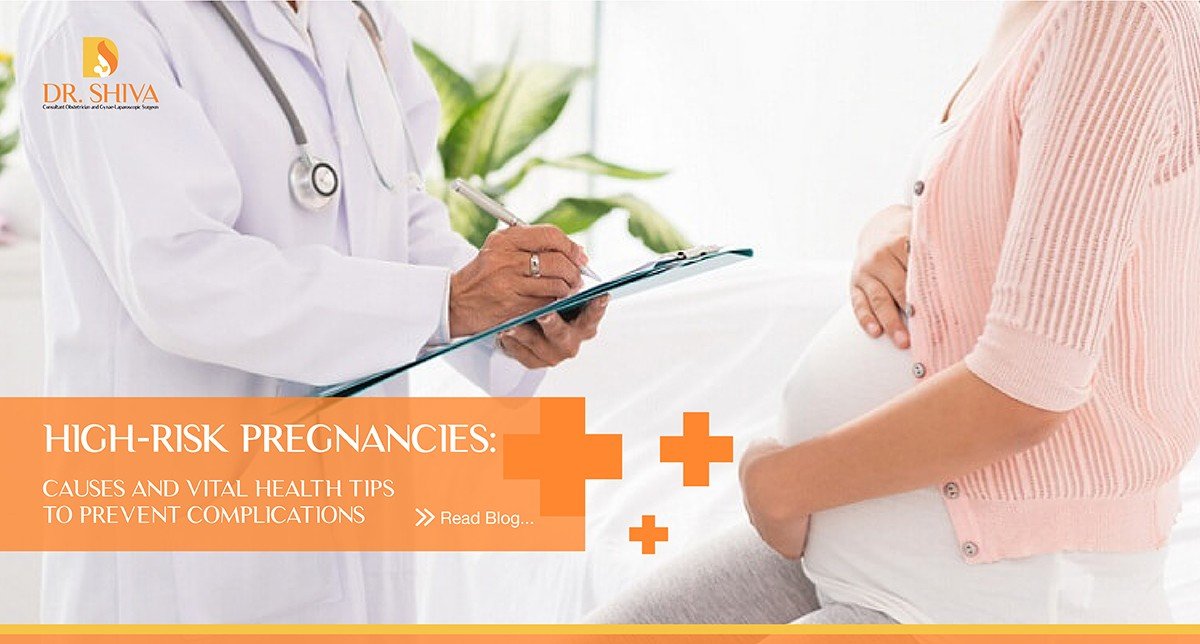
How to Overcome High-Risk Pregnancies |By Dr. Shiva
High-risk pregnancies require specialized medical care & attention. Learn how to deal with a high-risk pregnancy to keep you & your baby healthy.
Pregnancy is a special time in any woman’s life yet it also comes with a degree of anxiety. From maintaining a healthy diet to getting enough rest every day, you’re likely worried about several baby matters that aren’t limited to picking out names or decorating a nursery. Expecting becomes even more stressful if your doctor has deemed your pregnancy as high-risk.
Having a high-risk pregnancy automatically means that you need to take extra care of your body. Special monitoring from trained providers is also essential to keep you and your baby as healthy as possible.
What are the causes of high-risk pregnancies?
Often, a high-risk pregnancy results from medical conditions present before pregnancy. In other cases, a medical condition develops during pregnancy that poses health risks either for you or your baby.
Specific factors that also contribute include:
- Advanced maternal age: High-risk pregnancies are common for mothers older than 35 years old.
- Lifestyle choices: Drinking alcohol and smoking cigarettes can put pregnancies at high risk.
- Medical history: Diabetes, chronic hypertension, breathing problems, heart disorders, kidney problems and blood clots can increase pregnancy risks.
- Multiple pregnancies: Pregnancy risks are higher for mothers who are carrying twins or higher order multiples.
- Pregnancy complications: Various complications such as abnormal placenta position, foetal growth restriction and preeclampsia.
What steps can I take to prevent having a high-risk pregnancy?
Whether you’re already aware that you’ll likely to have a high-risk pregnancy or you simply want to help prevent one, here are some tips to minimize the risks.
1. Schedule a preconception appointment
According to the Dubai Health Authority, there has been a steady improvement in the provision of obstetric and neonatal care in the country. If you want to have a baby soon, don’t be afraid to consult your health care provider or obstetrician. They will counsel you on the measures you need to take as well as the treatment that you’ll need to prepare for pregnancy.
2. Maintain a healthy diet
During pregnancy, you’ll need more protein, folic acid, iron and calcium. If you have special nutritional needs due to a health condition such as diabetes, talk to your health care provider on how to fill any gaps and mitigate any risks in your diet.
3. Avoid risky substances
If you’re a smoker, quit as soon as possible. Alcohol and recreational drugs are off-limits as well. If you need to take any vitamins, supplements or medications, ask permission first from your obstetrician.
What can I do to ease my anxiety?
When you’re dealing with a high-risk pregnancy, you might feel nervous about prenatal visits because you’re afraid you’ll hear bad news. You might also be reluctant to think about what the future holds for you and your baby.
Unfortunately, anxiety can affect the health of your pregnancy so it’s best to relax and stay calm despite the situation. Seek support from your family and friends and carve out time in your daily schedule to meditate, nap or find other ways to just live in the moment. Prenatal yoga is also a good option for countering the effects of stress.
Additionally, it’s vital to schedule regular visits to your obstetrician. They will provide you with the specialized medical care that you need to manage your high-risk pregnancy. This includes routine tests and checks to ensure that you are prepared for a healthy delivery.
Click here to view a talk done on high risk pregnancy in which many queries related to this topic have been answered.
If you want to learn more about high-risk pregnancies, reach out to us by calling +971585904123.

